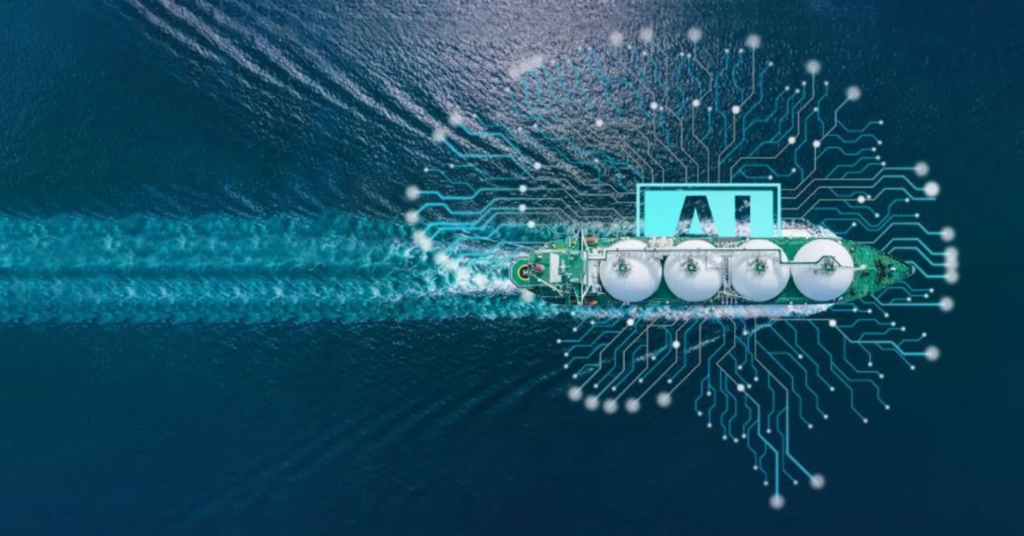Kuwait, one of the world’s leading oil producers, has long relied on its vast petroleum reserves to fuel its economy and support global energy demands. However, as oil exploration becomes more complex and resource-intensive, traditional methods are no longer enough to meet the rising expectations of efficiency, sustainability, and cost-effectiveness. This is where Artificial Intelligence (AI) steps in as a game-changer. By integrating AI into its oil exploration strategies, Kuwait is redefining the future of its energy sector with smarter, faster, and more sustainable solutions.
The Growing Need for AI in Oil Exploration
Oil exploration is not a simple task. It involves identifying potential oil reserves, analyzing geological data, drilling with precision, and minimising risks. Historically, these processes required enormous time, manual labour, and significant financial investments. Additionally, the margin for error was high, which could lead to costly mistakes. With the global energy market becoming increasingly competitive, Kuwait needed to embrace technology that would allow it to stay ahead. AI became the perfect answer because it offers unparalleled data analysis capabilities, predictive modelling, and automation that dramatically enhance efficiency.
AI helps analyse complex geological data faster and more accurately than human experts. This allows engineers and geoscientists to make better decisions about where to drill and how to optimize operations. Moreover, AI minimises the environmental impact of oil exploration by reducing unnecessary drilling and helping detect potential hazards early on.
AI-Powered Data Analysis and Prediction
The oil beneath Kuwait’s desert landscape is not evenly distributed, and locating new reserves has always been a challenge. AI uses machine learning algorithms to analyse seismic data, satellite images, and historical drilling information to predict the most promising drilling sites. These AI systems can process massive volumes of data that would take humans months to analyse, and they can detect patterns that are invisible to the human eye.
With predictive analytics, oil companies in Kuwait can significantly reduce the risk of drilling in unproductive locations. This not only saves millions of dollars but also makes exploration safer and more environmentally responsible. Additionally, AI tools can continuously learn and improve as they process more data, making their predictions increasingly accurate over time.

Enhancing Drilling Efficiency and Safety
Drilling is one of the most critical stages of oil exploration. Even a small mistake can lead to expensive downtime or dangerous accidents. AI technologies, such as real-time monitoring systems and predictive maintenance tools, are helping Kuwait optimise drilling operations. These AI systems can detect early signs of equipment malfunction, recommend preventive actions, and even automate certain drilling tasks to minimise human error.
For example, AI-powered robots are now assisting in offshore drilling operations, where conditions are particularly harsh. These robots can perform inspections, collect samples, and monitor equipment performance without risking human lives. This not only boosts safety but also improves the overall efficiency of exploration projects.
Reducing Environmental Impact
Environmental sustainability has become a top priority for the global oil industry, and Kuwait is no exception. Oil exploration often carries environmental risks, including spills, emissions, and disturbances to local ecosystems. AI helps minimise these risks by predicting potential environmental hazards before they occur and optimising exploration strategies to reduce ecological damage.
For instance, AI systems can simulate drilling scenarios to determine the safest and least invasive approach. They can also monitor air and water quality in real time, ensuring compliance with environmental regulations. By adopting AI-driven solutions, Kuwait demonstrates its commitment to balancing economic growth with environmental responsibility.
AI in Reservoir Management
Once oil is discovered, managing the reservoir efficiently is essential to maximize output while extending the life of the resource. AI is being used to create digital twins of oil reservoirs—virtual models that replicate the real environment. These digital twins allow engineers to test different extraction strategies and predict how the reservoir will respond over time.
With AI, Kuwait’s oil companies can adjust their extraction methods dynamically, preventing over-extraction and ensuring sustainable production. This technology not only increases profitability but also preserves resources for future generations.

Strengthening Decision-Making with AI Insights
The integration of AI into Kuwait’s oil exploration efforts is transforming decision-making at every level. From field engineers to corporate executives, everyone can access real-time data and insights that support strategic planning. AI-driven dashboards provide clear visualisations of operational performance, helping teams identify issues and opportunities instantly.
Moreover, AI is also enhancing collaboration across departments. Teams that previously relied on separate datasets can now work from a unified AI-powered platform, enabling faster and more informed decisions. This shift is fostering a culture of innovation and agility within Kuwait’s energy sector.
Future Prospects of AI in Kuwait’s Oil Industry
The use of AI in Kuwait’s oil exploration is still evolving, and the future holds even more promising possibilities. As AI algorithms become more advanced and computing power continues to grow, exploration processes will become even more accurate, efficient, and sustainable. Additionally, the integration of AI with other technologies such as the Internet of Things (IoT), drones, and blockchain will open new frontiers in oil exploration and production.
For example, IoT sensors connected to AI platforms can provide continuous monitoring of equipment and environmental conditions, allowing for fully automated and optimised operations. Drones equipped with AI cameras can survey remote areas with precision, while blockchain ensures transparency and security in oil transactions.
Kuwait is also likely to invest in AI-driven workforce training to ensure its oil industry professionals are equipped to leverage these technologies effectively. This combination of advanced tools and skilled personnel will keep Kuwait at the forefront of global energy innovation.
Conclusion
Artificial Intelligence is no longer a futuristic concept; it is a present-day reality that is transforming Kuwait’s oil exploration industry. By adopting AI, Kuwait is achieving unprecedented levels of efficiency, safety, and sustainability. The technology is helping the country discover new reserves, optimise drilling operations, protect the environment, and make smarter decisions. As AI continues to evolve, its role in Kuwait’s energy sector will only grow stronger, positioning the nation as a global leader in innovative oil exploration.
The journey of integrating AI into oil exploration is a testament to Kuwait’s vision of combining tradition with technology. By embracing these advancements, Kuwait is not only securing its energy future but also contributing to a more sustainable and technologically empowered world.
Do follow Gulf Magazine on Instagram.
Also Read – E-learning Platforms Driving Digital Education Growth in Kuwait



